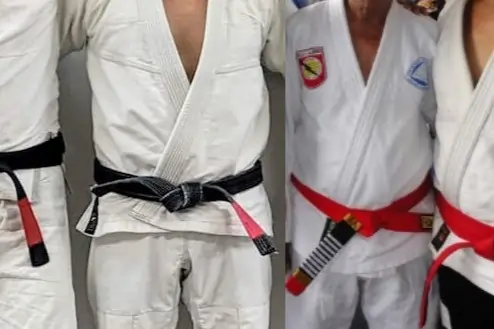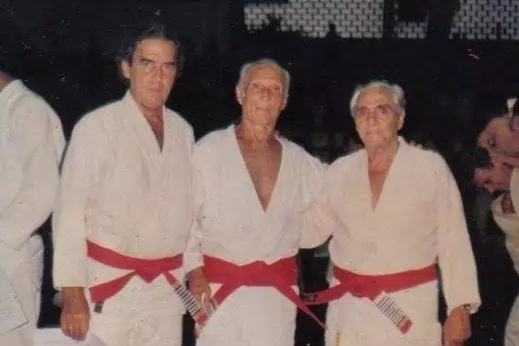Quit BJJ? 4 Reasons Why you Should or Shouldn’t Quit Jiu Jitsu
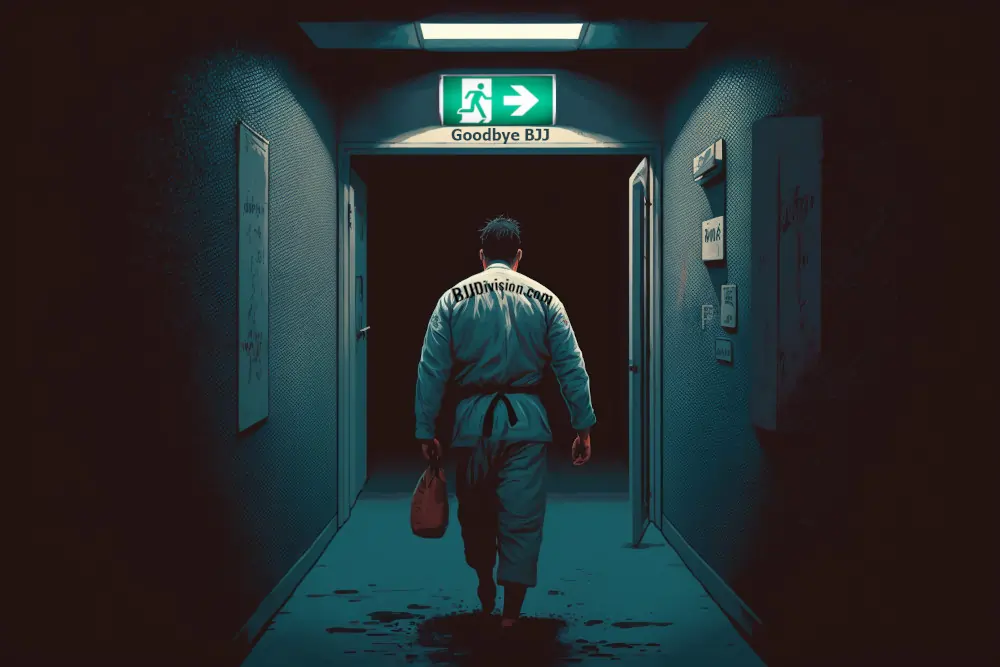
Brazilian Jiu Jitsu is a demanding martial art that requires dedication, commitment, and a willingness to push yourself to the limit. Although it is a great sport that offers many benefits, it is extremely tough to stay consistent over the years as Jiu Jitsu is designed to make you quit.
As a result, only a very small percentage of practitioners make it past the White Belt and many get the blue belt blues and quit at Blue Belt. only very few make it to Black Belt. Check out our articles on What percentage of BJJ White Belts Quit and Why so many Blue Belts quit BJJ.
As with any physical activity, there may come a time when you need to consider whether it’s time to quit BJJ. If you are thinking about quitting BJJ, take a deep breath and analyze your situation before making a decision. This article will help you decide how to move on.
When should you Quit BJJ?
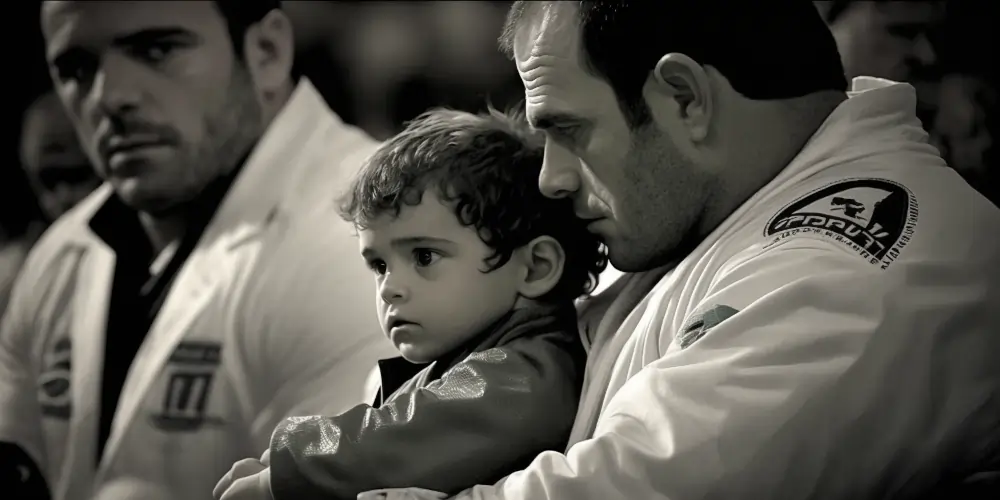
Unfortunately, there is no one-size-fits-all answer to this question.
Quitting Jiu Jitsu is never an easy decision, especially if you’ve been practicing for years or have achieved significant milestones in your training. On top of that, you have probably made friends along your journey and Jiu Jitsu became more than just a hobby.
However, there are several valid reasons to quit Jiu-Jitsu:
#1 Injuries
Jiu Jitsu is a contact sport that can lead to injuries, especially when practicing with partners who are not careful or experienced. If you’ve suffered severe or multiple injuries that have affected your quality of life to the point that it prevents you from enjoying other activities, it may be time to quit or at least take a break.
Minor injuries like finger injuries or toe injuries can be annoying but are often easily solved with the right taping methods. We prepared guides for both, finger taping and taping toe injuries like Turf Toe.
We can assure you, that you are not the only one that has suffered injuries from Jiu Jitsu. Check out our article on How common injuries are in BJJ.
#2 Burnout
Jiu Jitsu requires a significant investment of time as well as physical and mental energy, and it’s easy to get burned out if you’ve been training for an extended period. Dedicated athletes often pressure themselves into doing more than they can handle. If you’re no longer enjoying the sport or feel like it’s becoming a chore, it may be time to take a break, take it easy, or move on to something else.
#3 Life Changes
As we age, our priorities, responsibilities, and life circumstances change, and it may become increasingly difficult to balance our personal and professional lives with our BJJ training.
For example, anyone that has children can attest to changing priorities and sleepless nights. Anyone that works a full-time job and trains Jiu Jitsu will have to learn how to make time for both. If you’re no longer able to commit to regular training sessions or tournaments, it may be time to move on. Sometimes other things are more important in life and you can always come back.
#4 Personal Preferences
Some people simply prefer other martial arts or fitness activities, and that’s okay. Your interest can change over time and you shouldn’t hold on to something that you don’t enjoy and that doesn’t fulfill a purpose in your life. If you’ve tried Jiu Jitsu and found that it’s not your cup of tea, there’s no shame in quitting and pursuing other interests.
Why you might feel like quitting BJJ sometimes?
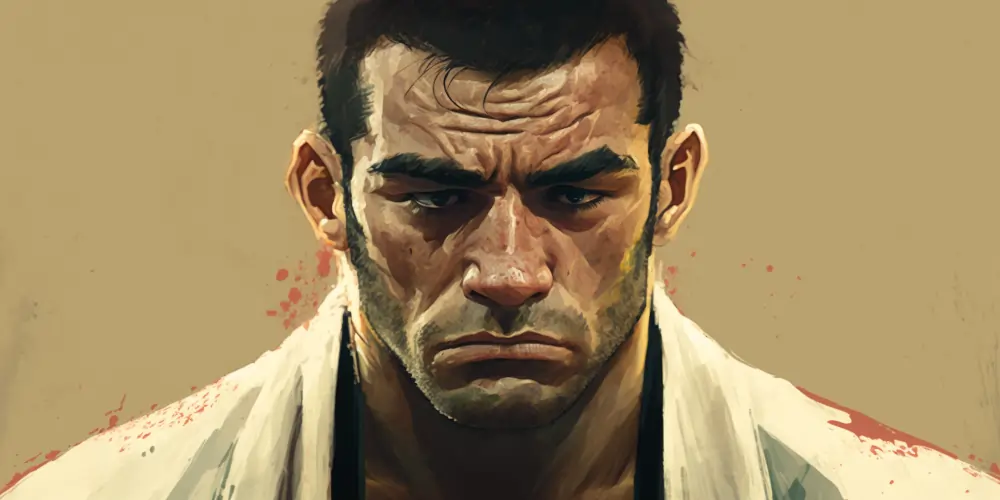
There are several reasons why someone might feel like quitting BJJ:
#1 Plateaus
BJJ is a complex martial art that takes years to master. Sometimes, practitioners may feel like they’re not making progress or have hit a plateau in their training, which can be demotivating. It is crucial to set goals, plan accordingly and review your training sessions to keep making progress!
We wrote a great article on BJJ planning and journaling that includes a free BJJ Journaling Template. Check it out.
#2 Competition Pressure
BJJ tournaments can be stressful, and some practitioners may feel like they’re not performing as well as they’d like. This pressure can be overwhelming, and some may consider quitting as a result.
Don’t let a bad competition experience ruin your BJJ career. We had plenty of losses over the years and they are part of the learning experience. You win or you learn.
#3 Training Partners
Having the right training partners is crucial. Try to find someone that trains at the right intensity, has the same goals as you, and you enjoy being around. If don’t get along with your training partners or feel like you’re not getting the support you need, it can lead to a lack of motivation and a desire to quit.
#4 You have No Goals
If you don’t have clearly defined goals in the sport, it will be hard to stay motivated. Check out our article on how to plan and set goals for BJJ.
#5 You are Too Hard on Yourself
Chances are you are putting yourself don’t without any rational reason. Most people tend to be too hard on themselves. Make an honest self-assessment and you will see that you made great progress.
What to do if all my friends quit BJJ?
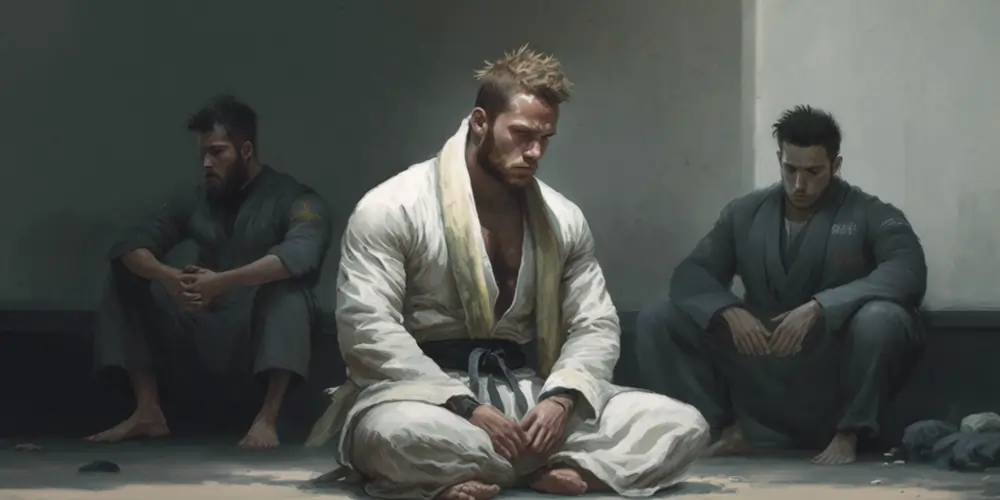
Many athletes started training Brazilian Jiu Jitsu because of a friend, and many training partners will become friends over the years of sharing the mats. But what to do if all your friends quit BJJ?
If all your friends have quit BJJ, it can be challenging to stay motivated and continue training. However, there are several things you can do:
#1 Find New Training Partners
The most important thing is to be open to making new friends and training partners. Try drilling and rolling with someone you have never trained with before and start a conversation. On top of that, joining a new gym or attending open mat sessions can be an excellent way to meet new training partners and expand your BJJ network.
#2 Attend Seminars and Workshops
Attending BJJ seminars and workshops can be a great way to learn new techniques and meet other practitioners.
#3 Set New Goals
Setting new goals can help someone stay motivated and focused on their BJJ journey. Whether it’s earning a new belt or competing in a tournament, find something that excites them and work towards it.
What to do after you decided to quit Jiu Jitsu?

If you’ve decided that it’s time to quit Jiu Jitsu, there are a few things you can do to prevent regrets and make the transition as smooth as possible:
#1 Be Honest with Yourself
Why are you really quitting BJJ? Have you become lazy? Are you injured? Are you just trying to make an excuse to quit BJJ?
There are good and bad reasons for quitting BJJ. Evaluate you situation and decide accordingly. Acknowledge the reasons why you’re quitting and be honest with yourself about your feelings. It’s okay to feel sad or disappointed, but remember that quitting doesn’t always mean failure.
#2 Talk to your Coach and Teammates
Let your coach and teammates know that you’re quitting and thank them for their support and guidance. You may be surprised at how understanding and supportive they are. Chances are your coaches and teammates have also been through a lot in their life and on their Jiu Jitsu journey.
#3 Stay Active
Just because you’re quitting Jiu Jitsu doesn’t mean you have to stop being active. If you end up sitting on the couch all day after quitting Brazilian Jiu Jitsu, it is a sign that you didn’t quit for the right reasons but from a lack of motivation and drive in general. Look for other fitness activities or martial arts that interest you and give them a try.
#4 Set New Goals Outside of BJJ
Setting new goals can help you stay motivated and focused on your next challenge. That’s what life is about, finding challenges and conquering them. Whether it’s running a marathon or learning a new language, find something that excites you and work towards it.
Conclusion
In conclusion, quitting Jiu Jitsu is a personal decision that should be based on your circumstances and priorities. Don’t let anyone tell you what to do.
The most important thing is, to be honest with yourself and ensure you are quitting for the right reasons.
If you’re no longer enjoying the sport or it’s negatively impacting your health or quality of life, it may be time to move on, even if it is just a temporary break. Remember that quitting doesn’t mean failure, and there are plenty of other opportunities to stay active and pursue new challenges.

